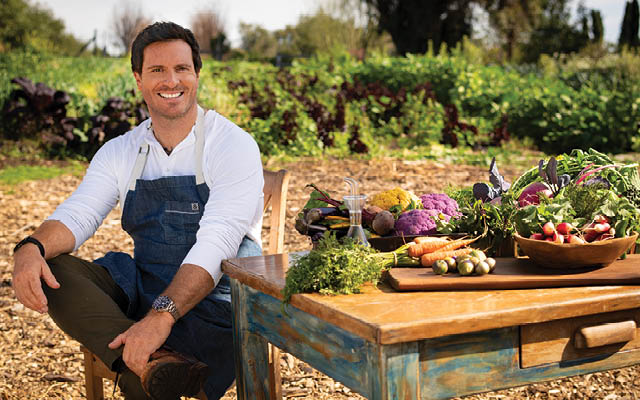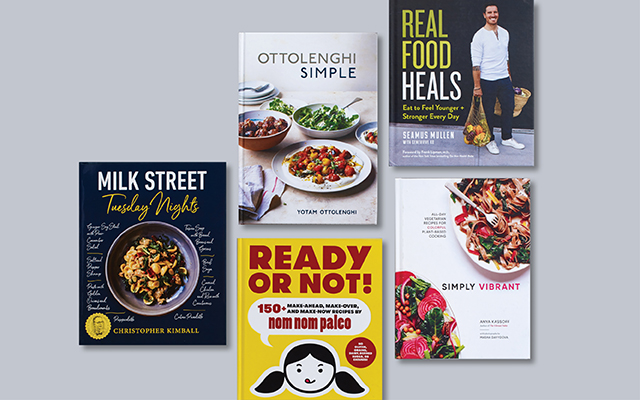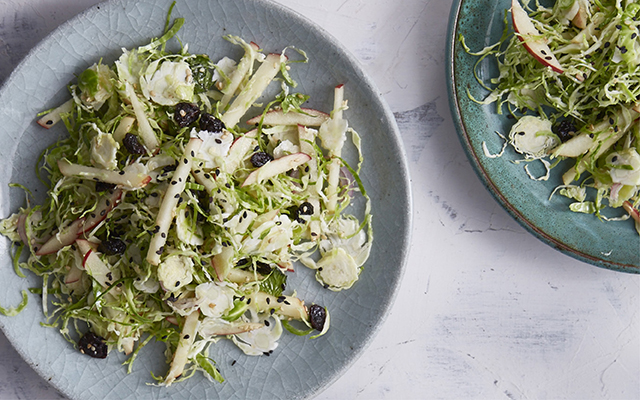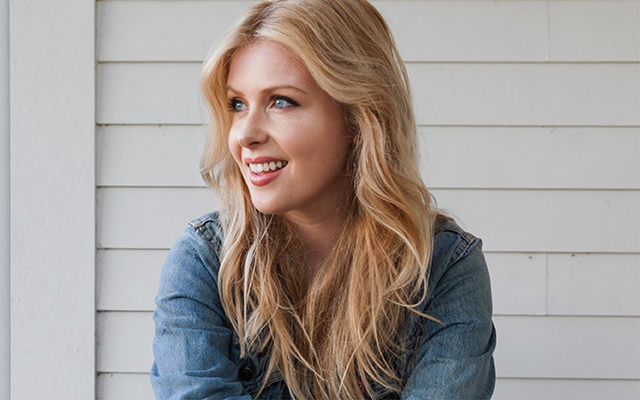Seamus Mullen feels great these days. But in 2012 the award-winning chef and restaurateur was lying in a hospital bed with a fever, clinging to life after experiencing complications stemming from rheumatoid arthritis — an autoimmune disease he’d battled for years.
Mullen had already begun changing his diet by eating more seasonal foods, but his near-death experience was a turning point. After leaving the ICU, he was intent on making lasting changes — starting with his mindset.
“Nobody can get better if they don’t believe they can get better,” he says. “The last day that I was sick was when I decided that I was not a sick person, but that I had a sickness.”
That distinction was key, he adds. “I stopped defining myself by my illness and started taking control over myself and my choices, which helped me overcome the illness.”
Once out of his hospital bed, Mullen enlisted New York functional-medicine physician Frank Lipman, MD, to help him ease the chronic inflammation that was contributing to his illness. He switched to paleo-inspired meals that limited sugar, carbs, and convenience foods while pushing vegetables, healthy fats, and moderate amounts of grassfed meats to the center of his plate.
Seeing and feeling the drastic improvements in his own health — he’s now asymptomatic — inspired him to share his success in a new cookbook, Real Food Heals, and as cohost of the Goopfellas podcast.
Improving health goes beyond food for the 45-year-old Mullen. “Setting an intention is important for me,” he explains. “Before I really made changes in my life, I half-heartedly did a lot of the right things. I was trying to exercise, but I’d find excuses to why I wasn’t successful. I was trying to eat well, but I was looking for immediate results.”
“Change may seem slow,” he adds, “but if you commit to taking care of your entire self, you will feel better and improve your health.”
Experience Life | How has your mindset about food changed over the course of your life and career?
Seamus Mullen | When I was a young, up-and-coming cook, I definitely focused on what I could do to demonstrate my creativity. As I matured, I realized that the real skill in cooking is not in adding but in subtracting and editing to make certain ingredients shine.
Over the years, it became clear that the most successful dishes have the fewest number of ingredients that are really well handled. So, I concentrated on making something taste delicious without crowding the plate with a bunch of unnecessary stuff.
As I progressed in my health transformation, I started to think about what’s going on when I put those ingredients into my body. I began asking myself, How does eating this make me feel?
EL | How did that affect the recipes you created as a chef to share with others?
SM | The challenging thing is that we’re all very different, and what might work for one person will not necessarily work for someone else. But I certainly started to think more about the impact that food has on our well-being. So as I started to craft recipes and menu items, I focused on creating something that’s really delicious and nourishing but, at the same time, isn’t full of unnecessary sugar, superfluous carbohydrates, or even dairy.
EL | You’ve gone from well-known chef and restaurateur to cookbook author and podcast host. Did your health issues influence your career trajectory?
SM | Without a doubt. There are real challenges to leading a healthy lifestyle and working in restaurant kitchens, which is unfortunate.
But I also realized that I could make a greater impact outside of the restaurant. To deliver the notion that healthy food can be delicious and that we can take control of our well-being by the choices we make in the kitchen is something I want to bring to a broader audience.
So, I turned to the podcast, public-speaking engagements, consulting work with other restaurants, and special events and retreats in order to do that.
EL | You’ve said being healthy is contagious. Let’s talk about that.
SM | Well, when people make changes, they influence the other people and systems around them. For example, a number of colleagues have seen me go through my transformation and were inspired to make their own changes — from dietary shifts to losing weight to improving biometrics to getting sober and quitting smoking.
We’ve also seen changes in the restaurant industry, where people are focused more on creating healthy work environments. Our industry was heavily affected by the #MeToo movement, and, as a byproduct of that, we were forced to look at how the restaurant culture had existed for so long and how damaged and dysfunctional it was. We have begun to make changes within the general quality of restaurant culture.
EL | You’ve also seen that impact in your work with No Kid Hungry, right?
SM | Yes. Several years ago, a group of chefs who, like me, enjoyed cycling came up with an idea of doing a fundraiser for No Kid Hungry, which works to end childhood hunger in America.
So, we rode from New York City to Washington, D.C., and raised a couple hundred thousand dollars. What we noticed was that many of our colleagues who were not cyclists felt left out and told us they’d really like to give that a try. So we reached out to other folks within our industry to get people on bikes.
Two amazing things ended up happening. One, we got a lot of chefs — who had never ridden a bike and had not done much in terms of exercise — to train, get in shape, and make positive inroads in their own well-being.
The other thing that happened is we started raising a ton of money for No Kid Hungry, and we were able to grow our group, by year three, to 300 cyclists riding 300 miles in three days. For a lot of these chefs, the idea of riding 100 miles a day on a bicycle for three days in a row was something they never, ever in a million years thought they could accomplish.
Many still ride regularly, are super fit, and have really changed their lives.
EL | In your journey, you’ve found that long-lasting change requires certain practices or pillars. What are they?
SM | I describe them as nourish, move, and recover. To move well you need to nourish yourself well, and to recover you need to move well, so they balance each other.
Your body gets really good at doing whatever you ask it to do. If you make a habit of going to yoga, then your body gets better at doing yoga. If you make a habit of sitting on a couch, watching movies, and eating potato chips, you get really good at doing that.
So it’s about creating habits and routines that support one another to create an upward spiral instead of a vicious downward one. For example, when I was really sick, I would get out of work late feeling exhausted and terrible and have a drink to wind down, which often led to another drink and then to me eating a slice of pizza at 2 in the morning and sleeping poorly.
Now I get up every morning at 5:15 and work out really hard, and by 9:30 at night I’m ready for bed, and I sleep much better. And the choices I make throughout the day around food tend to be better because I’ve already made one positive commitment toward my well-being. So, it makes it easier to say, “Hey, you know what? I’m going to make another positive decision.”




This Post Has 0 Comments